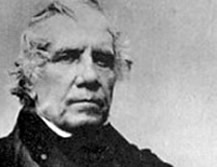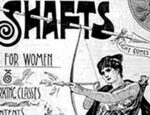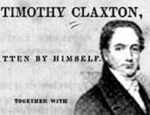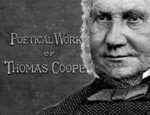Description
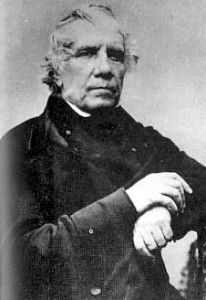 Meet Samuel Bamford, poet and radical campaigner for universal suffrage and parliamentary reform in Middleston, near Manchester, who saw his exclusion as a boy from a classical education as the moment that determined he would stay labouring-class forever. He worked as a floor-sweeper, farm labourer, sailor, warehouse man, handloom weaver, and journalist. He was acquitted when tried for treason in 1817, but convicted for his role in the demonstration that led to the Peterloo massacre in 1819, specifically for ‘assembling with unlawful banners at an unlawful meeting for the purpose of inciting discontent.’ He spent a year in Lincoln Prison. He believed that his father’s refusal to let him learn Latin had far-reaching consequences:
Meet Samuel Bamford, poet and radical campaigner for universal suffrage and parliamentary reform in Middleston, near Manchester, who saw his exclusion as a boy from a classical education as the moment that determined he would stay labouring-class forever. He worked as a floor-sweeper, farm labourer, sailor, warehouse man, handloom weaver, and journalist. He was acquitted when tried for treason in 1817, but convicted for his role in the demonstration that led to the Peterloo massacre in 1819, specifically for ‘assembling with unlawful banners at an unlawful meeting for the purpose of inciting discontent.’ He spent a year in Lincoln Prison. He believed that his father’s refusal to let him learn Latin had far-reaching consequences:
‘I being the first boy in the first English class, should have been promoted to the “accidence.” But, alas! when called upon I could only inform the master, with blushes on my cheeks and tears in my eyes, that my father did not wish me to go into the Latin class at present, but desired that I might remain in the class to which I then belonged. My master, I can recollect, looked at me incredulously; studied, questioned me again, and, with an expression of disappointment, motioned that I should return to my place. This was a sore humiliation to me. My comrades Pilkington, Woodhouse, and others, passed over to the Latin side, whilst I remained in a class lower than theirs, and consequently stood in a situation inferior to that of those whom I had been in the habit of leading. Henceforward I thought meanly of my position, and never glanced at my former comrades without a feeling which lowered the zest of my future school-life.
‘This as it regarded my welfare was probably the most momentous and ill-advised step which my father could have determined upon. Had the threshold of the classics been once crossed by me, great must have been the difficulties indeed which would have prevented me from making the whole of that ancient lore my own. I was just at the right age, and in the right frame of mind, with faculties as it were newly come to life, and with an instructor who I have since had many reasons for supposing would have done all he could towards helping me forward into the upper schools; and, had I once got fairly introduced to the learning of the ancients I should not have stopped short on this side of the university I think. But my father had more humble views, founded on serious and conscientious reasons I have no doubt. He said Latin should be learned by such only as were intended to become doctors, or lawyers, or parsons; and as I should never be any of these, the time spent in learning it would only be thrown away. A knowledge of English grammar, he said, was worth more than Greek or Latin to an Englishman, and he wondered why, in the name of goodness, English grammar was not taught at this English grammar school; and so he concluded he would not buy me an “accidence.” Such were the homely views and the determination resulting from them, which kept me at my English rudiments another year, and thrust me from that portal of knowledge which I never afterwards had an opportunity of approaching. Had my mother been living, such would probably not have been the case, and a course of life, far different from the one I have pursued, would have been marked out before me.’
n.b. around 1810.

